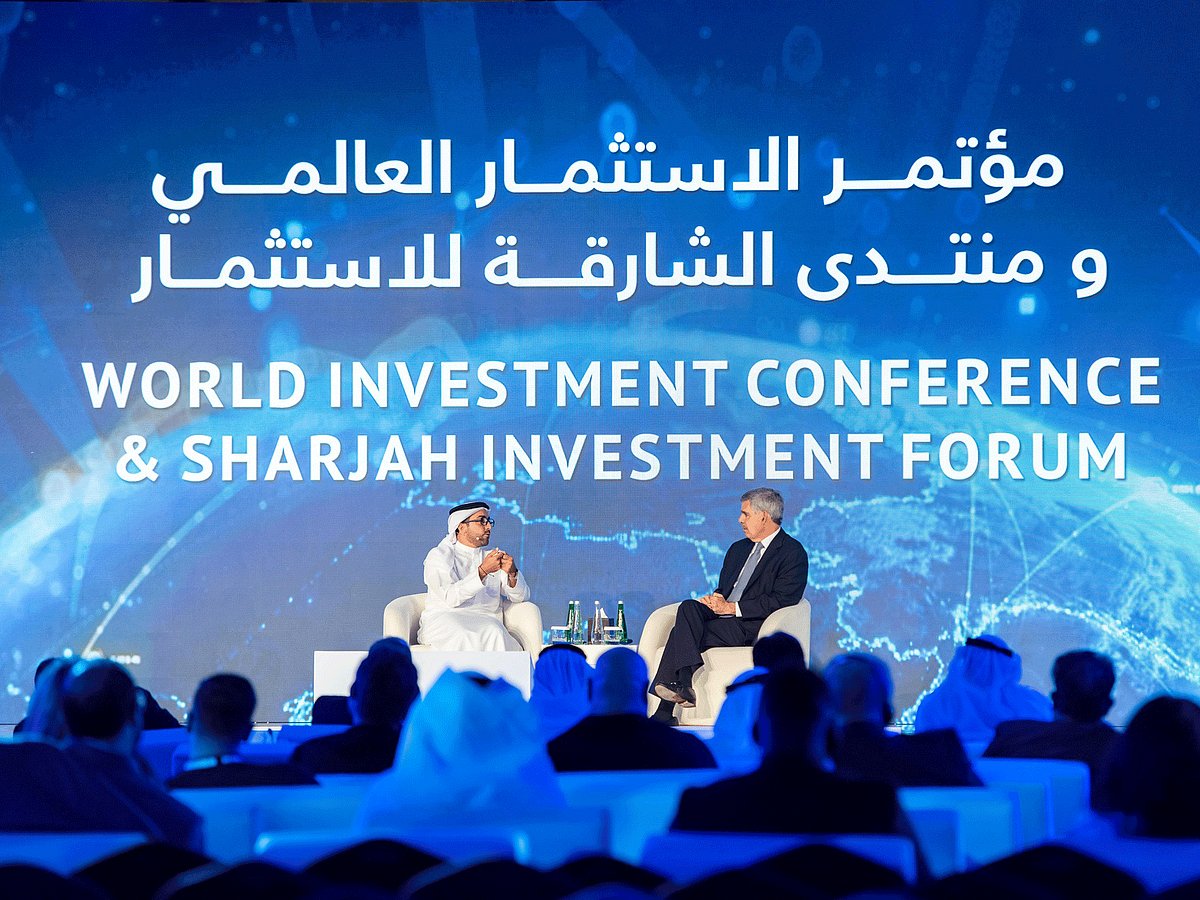Global fragmentation will weaken the dollar’s dominance, El-Erian cautions
New trade and payment systems are reshaping the world’s financial order

Sharjah: The influence of the US dollar is set to weaken as the global economy shifts away from a single-core financial system towards a more regional and fragmented model, according to Egyptian-American economist Dr Mohamed El-Erian, Chief Economic Advisor at Allianz.
Speaking during a fireside chat at the Shajah Investment Forum 2025, El-Erian said the monetary order built around the dollar is evolving as new trade and payment networks emerge.
“There is no currency to substitute the dollar,” he said. “So if you’re worried about the dollar being at the centre of the economic system, that’s going to remain. But its influence in the system is going to decline.”
Also Read
Sharjah builds investment credibility through institutions, not incentives: Sheikha Bodour Al QasimiUAE minister calls for ‘profound and permanent’ shift in global investment strategyHe explained that the international framework long defined by a “core and periphery” is being re-wired as countries, led by China, build “little pipes around the middle, which is the US.” These new financial and institutional arrangements, he said, are “not replacing the US, but weakening the dominance of the middle.”
El-Erian described the result as system fragmentation, with economies creating alternative routes for trade and investment to reduce their exposure to US policy shifts.
Three global risks to watch
Asked about the main risks facing policymakers, El-Erian identified three: systemic fragmentation, unmanaged artificial-intelligence adoption, and growing fiscal imbalances in the US and Europe.
“The first is that the system fragments,” he said. “The second is that we don’t risk-manage the bad parts of AI, I call it the 80-20 proposition: 80 is incredibly good, 20 is dangerous.”
He warned that governments must strike a balance between innovation and regulation. “In the US, they fall in love with the 80 and forget about risk-managing the 20. In Europe, they get so concentrated on the 20 that they strangle the 80,” he said.
The third risk, he noted, is whether the bond markets will lose patience with advanced economies that continue to run large deficits. “There’s a real question as to whether the advanced countries of Europe and the US will maintain the confidence of the bond market,” he said, pointing to France’s recent downgrade as a sign of strain.
India’s rise and shifting opportunity zones
Amid these challenges, El-Erian said India stands out as the fastest-growing large economy over the next five years, with its demographics and scale creating a dynamic similar to China’s in earlier decades. “Increasingly, people are going to look at the Indian market as one of the most promising markets,” he said.
He also noted that the Gulf region, and particularly the UAE, has positioned itself strategically by recognising global shifts early. He credited the country’s “visionary leadership” and accountability in implementation for sustaining momentum through different economic cycles.
“In order to prosper, you have to make an effort to see where the world is going and what is your position there, and most importantly, what is your edge,” he said. “That notion of edge is really important, and that’s very clear in the case of the UAE.”
He added that smaller, agile economies such as Singapore, and by extension, the UAE, succeed by treating scale as a competitive advantage only when coupled with adaptability.
Sharjah’s hidden potential
Moderator, Sheikh Fahim Al Qasimi, Chairman of the Department of Government Relations in Sharjah, noted that Sharjah’s economy grew 8.4% in 2024, with the logistics sector expanding by 10%.
Asked what advice he would give to policymakers in the emirate, El-Erian replied that Sharjah must communicate its value proposition more assertively. “People don’t quite realise how much of a hidden gem Sharjah is,” he said. “The more we communicate, the more people realise there’s a lot going on here that positions you for the future.”
He left on a note of optimism, contrasting the energy and execution in the Gulf with the stagnation in parts of Europe. “There aren’t very many countries that are positioning themselves to benefit from the world of tomorrow, this region is,” he said.
Sign up for the Daily Briefing
Get the latest news and updates straight to your inbox
Network Links
GN StoreDownload our app
© Al Nisr Publishing LLC 2026. All rights reserved.